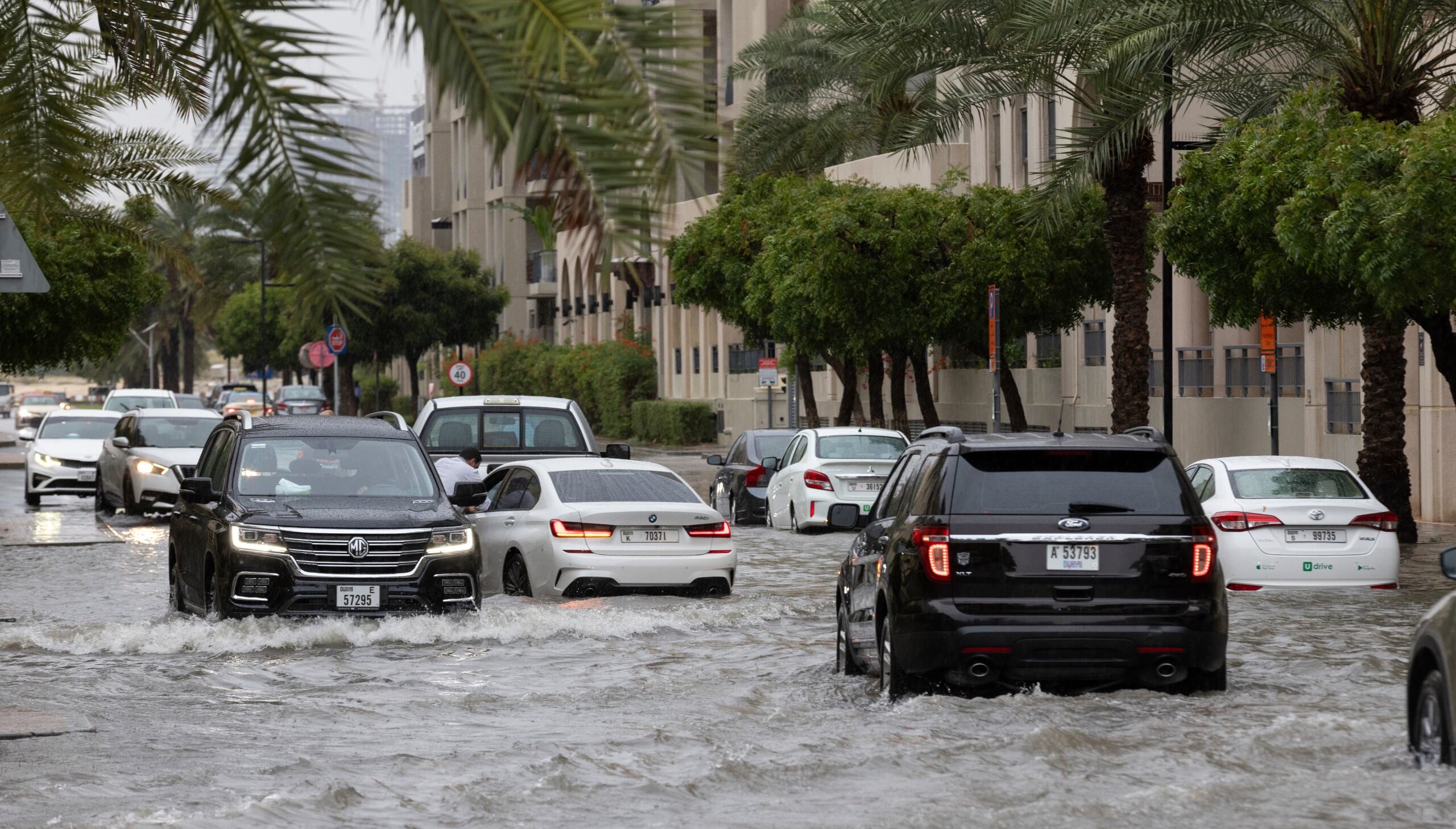KAUST report warns of flash flooding like that in the Arabian Peninsula

Flash floods hit the Arabian Peninsula in April 2024.
This week, some countries in the Arabian Peninsula, including the United Arab Emirates and Oman, saw rainfall in one day that exceeded their average annual rainfall. This extreme weather event has led to massive flooding and the death of at least dozens in the region. Climate scientists fear countries should expect more of these events in the near future. Indeed, last year, a group of scientists at King Abdullah University of Science and Technology (KAUST) published the Climate Futures Report, which provides a comprehensive analysis of climate change and its consequences in the Arabian Peninsula.
While rising temperatures are predicted to increase the intensity and frequency of droughts and add stress to food production, they are also anticipated to increase flash floods like those seen this week. Riyadh was one of those affected by the recent floods and has seen more than 10 floods in the past 30 years. Models in the report predict that annual maximum rainfall will increase by 33% before the end of the century under a high greenhouse gas emissions scenario.
Many regions are not prepared. As seen in the Arabian Peninsula, deaths are just one of the ways lives will be affected. With roads flooded and flights canceled, the economic disruption has yet to be calculated, but there is no doubt the costs will be onerous.
"The Gulf region frequently experiences high-intensity, short-duration rainfall events that typically result in flash floods. These floods swiftly navigate through wadis toward the sea or ocean. However, urbanization, driven by a rapidly expanding population, has altered natural water flow paths, sometimes hindering the efficient passage of floodwaters, causing not only loss of life and damage to infrastructure and property, but also overwhelming sewage systems and potentially spreading diseases,” said KAUST Assistant Professor Hylke Beck, a co-author of the report. The report was done as a collaboration between KAUST, AEON Collective and King Abdullah Petroleum Studies and Research Center (KAPSARC).
While Saudi Arabia has 574 dams designed to protect against flash floods, the assumptions during their construction might not anticipate future climate change conditions. With its expertise in the field, KAUST is supporting MEWA by devoting much of its resources to improving the management of new and existing dams and enhancing flash flood warning systems.

Hylke Beck
KAUST has established itself a global leader in the field, especially regarding climate in the Arabian Peninsula and Saudi Arabia. Indeed, because of its vast collaborations, KAUST has an extraordinary collection of satellite ocean and atmospheric data of the region in the world, while its supercomputing facilities – top in the region for public research – provide unprecedented capabilities in the analysis of this data.
As new research continues to provide new insights, Beck and other KAUST scientists plan to publish a new report for COP16 in Riyadh in December 2024.

